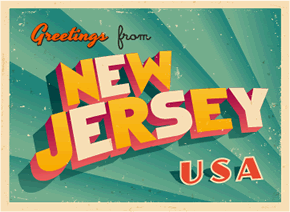2 Important Things New Jersey’s Online Gambling Industry Has Gotten Right
 New Jersey is now six months into its online poker experience. While there are plenty of negative aspects of the emerging industry, there are also plenty of reasons for optimism moving forward as well.
New Jersey is now six months into its online poker experience. While there are plenty of negative aspects of the emerging industry, there are also plenty of reasons for optimism moving forward as well.
Of the three markets that have legalized online poker, New Jersey’s has certainly performed from a revenue standpoint. New Jersey operators, regulators, and lawmakers all seem to be on board with online gambling, and this consensus has produced some solid, if unremarkable results thus far.
In this column I’ll take a look at two specific things that the New Jersey online gambling industry has gotten right that other licensed markets haven’t.
Synchronized vs. Staggered Launch
New Jersey’s decision to launch all of their online gambling sites simultaneously proved a far better method than Nevada’s staggered launch. There doesn’t seem to be any aspect of the staggered launch that was more beneficial than a synchronized launch.
While the regulations seem far more conservative and restrictive in Nevada (which can be both good and bad), the fact that it took Nevada nearly two years for their online poker bill’s passage to launch a single room raises red flags.
Additionally, the fact that they only have three poker rooms launched after another year (and one of them, South Point’s Real Gaming, that is utterly irrelevant at this point) also attests to the lack of results from the staggered approach.
Firstly, Ultimate Poker was basically given a six month head start and absolute monopoly power in the market. Without this head start the site may very well have been a total flop. Sure they are the second largest of the three online poker sites in Nevada as well as compiling an equivalence of about 1/2 the size of leader WSOP.com, but their current status as a significant player in Nevada might have nothing to do with their product.
It does, however, have everything to do with the brand recognition and loyalty they built up during their six months when they had the only horse in the race. Instead of rewarding the product, the staggered launch has rewarded the ability to get your product to the market.
Secondly, the staggered approach has proven to be a demotivating factor for new rooms. Instead of hustling to get their product ready for a specific launch date, potential online poker providers can simply do things on their own schedule without deadlines and worries.
Furthermore, after seeing the current rooms struggle to gain a player base, that will ultimately lead to profitability, many potential operators have decided to take a wait-and-see approach. This essentially means the operators have been putting their launch on hold to see if more favorable market conditions present themselves.
By synchronizing their launch New Jersey forced their rooms to be ready whether they liked it or not, which didn’t allow one site to gain a market advantage over the others. Operators had no idea how their product would be received, and could not simply stand by to see what their competitors were launching. Rather, they had to take firm action to have success in the market.
With all the above mentioned about the lack of success in Nevada, I would be shocked if any future markets use the staggered approach.
Squeezing Unlicensed Rooms
Another area where New Jersey has had far more success than Nevada and Delaware (and frankly anywhere else in the world) has been with squeezing unlicensed rooms out of the market.
Thus far the Merge Gaming Network, the Winning Poker Network, Equity Poker Network, and Bovada have all left New Jersey in some capacity. Bovada is no longer accepting new players from New Jersey, while Winning Poker Network publicly declared their exit. WPN does seem to be making overtures to players behind the scenes, however, by asking players to change their address to continue playing.
Precisely how New Jersey regulators have accomplished this is unknown, but we do know they have sent at least six cease & desist letters to online poker affiliates. These regulators are licensed to advertise legal online poker rooms in New Jersey, demanding they stop running advertisements for unlicensed rooms alongside their ads for licensed rooms.
It’s quite likely that in addition to the affiliates, the unlicensed operators themselves also received a C&D letter from the New Jersey Division of Gaming Enforcement and/or the Attorney General’s office.
Additionally, now that there are specific laws in order to prosecute unlicensed providers, it is in the best interest of certain corporations to shut down these black market sites. New Jersey has seemingly been able to accomplish what the federal government and other states have been unable to do.
Some of these unlicensed providers have also pulled out of Nevada and Delaware, but only New Jersey has managed to rid themselves of all of the above named providers. The only notable black market provider still operating with impunity in New Jersey is the Chico Poker Network.
Removing unlicensed providers is extremely important in ring-fenced markets where every player matters. When average cash-game traffic for the largest licensed room in New Jersey (the combination of BorgataPoker.com and NJ.PartyPoker.com) is hovering around 150 players, this site cannot afford to see 20 players siphoned off to Americas Cardroom, and another 40 to Bovada; those seemingly small amounts represent a significant chunk of the site’s overall traffic.






